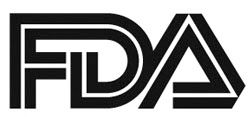FDA Grants Fast Track Designation for ME-401 in Relapsed/Refractory FL
The FDA has granted Fast Track Therapy designation to ME-401, an investigational selective oral inhibitor of phosphatidylinositol 3-kinase inhibitor as treatment of patients with relapsed or refractory follicular lymphoma who have received at least two prior systemic therapies.

The FDA has granted Fast Track Designation to ME-401, an investigational selective oral inhibitor of phosphatidylinositol 3-kinase (PI3K) inhibitor, as a treatment of patients with relapsed or refractory follicular lymphoma (FL) who have received at least 2 prior systemic therapies, according to a press release from the drug developer, MEI Pharma.1
"We are pleased to report that we have received Fast Track designation for ME-401. This designation holds several important advantages to expedite the development and regulatory review of ME-401 as we work diligently to deliver it as a new potential treatment option for patients and their physicians," said Daniel P. Gold, PhD, president, and CEO of MEI Pharma, in a press release.
Interim clinical data from the phase II TIDAL study of ME-401 with or without rituximab (Rituxan) for the treatment of patients with non-Hodgkin lymphoma following the failure of 2 or more prior therapies were presented at the 2019 International Conference on Malignant Lymphoma. The results were favorable. Out of 61 patients total, 48 patients with either relapsed/refractory FL or chronic lymphocytic leukemia (CLL) or small lymphocytic lymphoma (SLL, n = 13) were given ME-401 alone and 13 patients received ME-401 plus rituximab. Of the patients who were treated, 33 had received 2 or more prior therapies. Among the subjects with CLL/SLL,IGHVgene mutations were identified in 2 patients, not evaluated in 4 patients, and 7 patients did not have mutations. Overall, 64% of patients remained on treatment at data cutoff with a median follow‐up of 12.3 months (range, 1.6‐25.1) and 22 patients discontinued treatment. Nine patients had progressive disease (PD).2
Initially, a dose-escalation of ME-401 (60‐180 mg) was administered daily on a continuous schedule (CS) until PD or unacceptable toxicity. On days 1-7 of a 28-day cycle during cycle 3 or beyond, patients on CS were able to be switched to an intermittent schedule (IS). Also, to manage toxicity in the CS patients, a switch to IS was allowed. In some cases, rituximab at 375 mg/m² for 8 doses in 6 months was added to ME-401.
Objective responses were observed in 77% of the evaluable patients with FL (n = 33), and in 100% of the evaluable patients with CLL/SLL (n = 11). Among patients with FL who received ME-401 alone, the response rate was 77% and was 78% with the addition of rituximab. Of patients with PD at 24 months, the response rate was 91%. Patients who had received ≥2 prior therapies achieved a response rate of 75%.
A total of 38 patients switched from CS to IS during the study and of those patients, 87% remained on therapy for a median of 14.5 months. Due to PD, 26 patients switched back to CS from IS, 3 patients discontinued treatment as a result of continued PD following a switch to CS, and 2 patients withdrew from the study.
Grade 3 immune-related AEs (irAEs) were reported in 31.7% of patients (n = 13) on CS and 10% of the patients who were switched to IS in cycle 3 (n = 2). Most of the irAEs observed with diarrhea and colitis. Six of the patients who experienced an irAE had a break from treatment and received corticosteroid therapy. Afterward, the patients resumed treatment with ME‐401 on IS without recurrence of the irAE.
TIDAL is an ongoing global, multicenter open-label, single-arm study. The primary end points in objective response rate and the secondary end points include the duration of response, complete response rate, progression-free survival, overall survival, the overall incidence of treatment-emergent adverse events, and the pharmacokinetics of ME-401.
To be eligible for the TIDAL study, patients aged 18 years or older require histologic confirmation of FL, a minimum of 1 bi-dimensionally measurable nodal lesion, adequate hematologic, renal and hepatic function at screening, Fridericia's formula QT-interval, and a left ventricular ejection fraction ≥45%. The study excludes patients with FL grade 3b transformation, lymphomatous involvement of the central nervous system, uncontrolled illness, current or historic drug-induced pneumonitis, a history of clinically significant cardiovascular abnormalities and gastrointestinal conditions, and those with active human immunodeficiency virus.
"We remain very encouraged by the maturing body of ME-401 clinical data, and we are excited to continue expanding the opportunity that ME-401 holds to provide a meaningful impact in the treatment of B-cell malignancies," Gold added.
References
- MEI Pharma announces fast track designation granted by u.s. fda for me-401 for the treatment of adult patients with relapsed or refractory follicular lymphoma [news release]. San Diego, California: Mei Pharma, Inc; March 31, 2020. https://bit.ly/2JuTnmr. Accessed April 1, 2020.
- Zelenetz AD, Jagadeesh D, Kenkre VP, et al. THE pi3kδ inhibitor ME‐401 ± rituximab in relapsed/refractory (r/r) follicular lymphoma (fl), chronic lymphocytic leukemia (cll), and small lymphocytic lymphoma (sll).Hematol Oncol, 37: 176-177. doi:10.1002/hon.133_2629
Examining the Non-Hodgkin Lymphoma Treatment Paradigm
July 15th 2022In season 3, episode 6 of Targeted Talks, Yazan Samhouri, MD, discusses the exciting new agents for the treatment of non-Hodgkin lymphoma, the clinical trials that support their use, and hopes for the future of treatment.
Listen
Comparing Results with Loncastuximab in the Clinic and Real-World Settings in DLBCL
April 1st 2024During a Case-Based Roundtable® event, Emily Ayers, MD, discussed the long-term results with loncastuximab in patients with diffuse large B-cell lymphoma and how this drug fared in the real-world setting in the second article of a 2-part series.
Read More